Where we find new old books, chapter 4: William Creech and a new first edition of Adam Smith’s Wealth of Nations
Once again external funding for a cataloguing project (the Henderson Bequest) has thrown into the light another hidden gem in the Special Collections of the Library of the University of St Andrews. The item under discussion is the first edition of Adam Smith’s An inquiry into the nature and causes of the wealth of nations, published on 9 March 1776 in London in two quarto volumes, by the printer William Strahan and the bookseller Thomas Cadell.
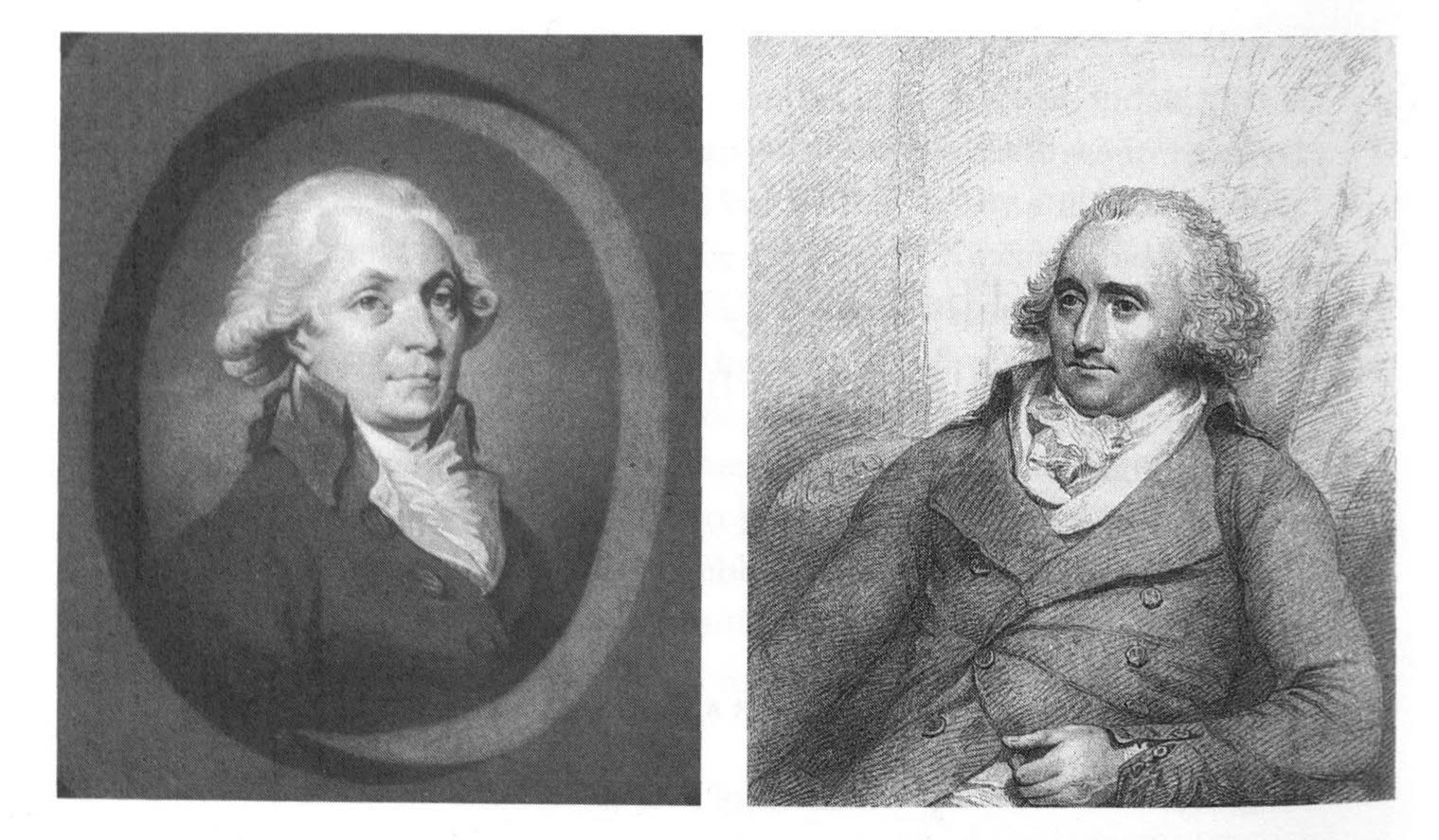
The Wealth of Nations, as Smith’s work is more commonly known, is recognised as his greatest work, and went through five editions in his lifetime (he died in 1790). Here at St Andrews we are lucky enough to have two copies of the first edition of 1776. At first glance they appear to be identical. But a closer inspection reveals one small discrepancy – in the imprint of one of our copies appears “and W. Creech at Edinburgh” alongside the names of Strahan and Cadell.
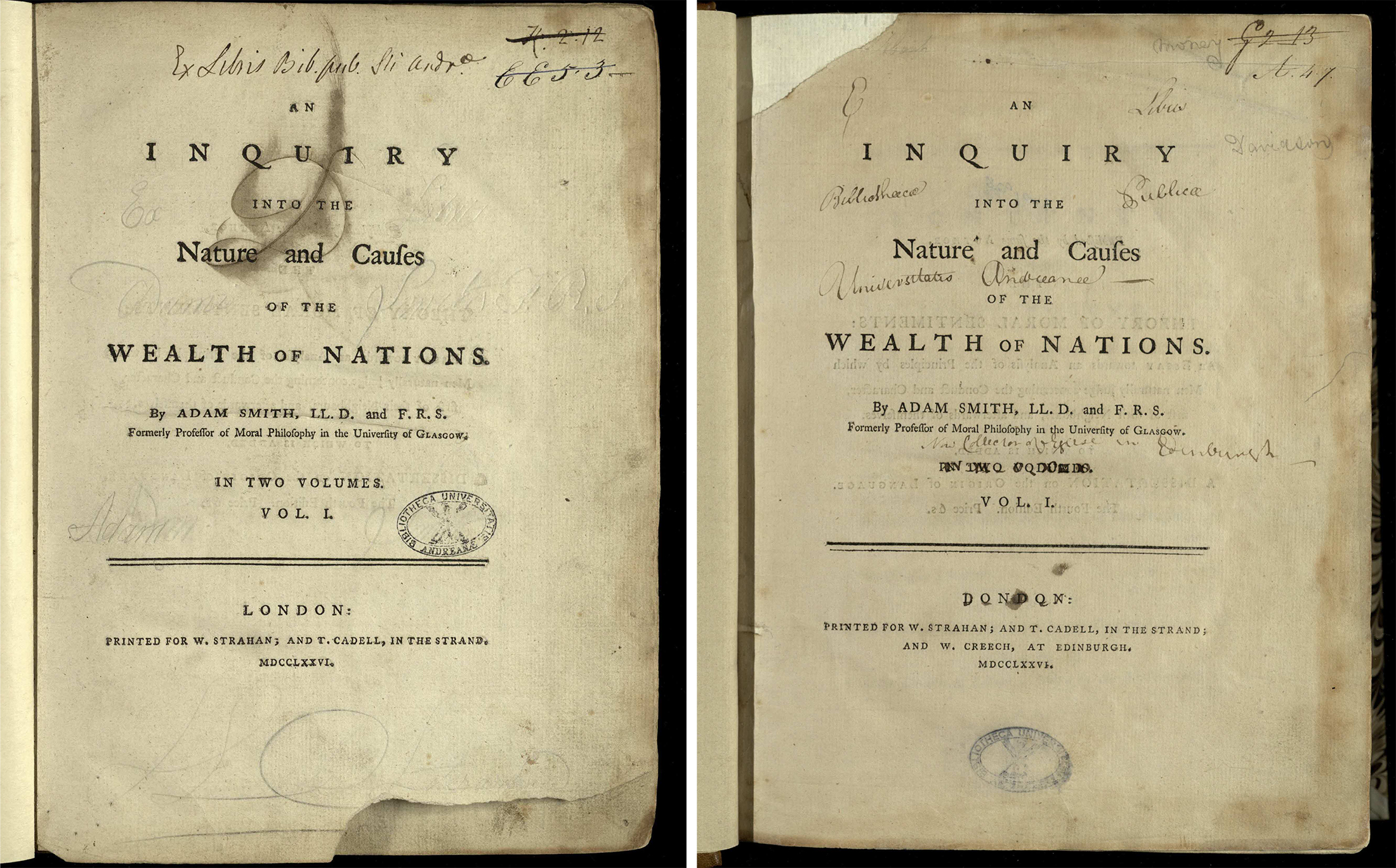
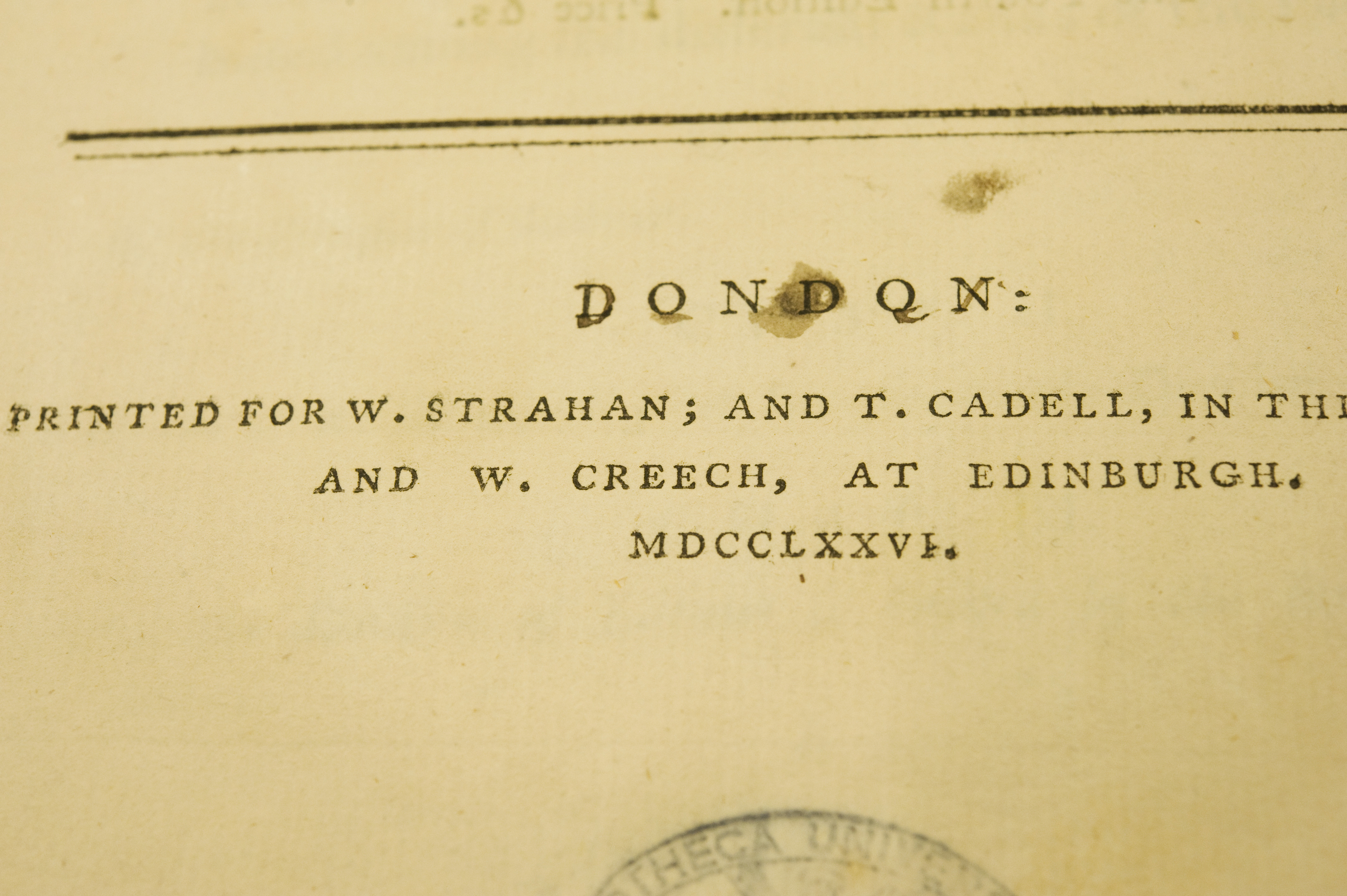
This variant state was duly reported to ESTC (with some bafflement as to why there were no other holdings of this well-known text), and the ever helpful John Lancaster, who is responsible for creating new records for ESTC, suggested that it may have been an error which was caught before many copies were printed, or that there was the possibility of cancels, either of the title leaves or of the whole first quires. Either way, a new record was created in ESTC, of which we are the only institution to have (so far) reported a copy.
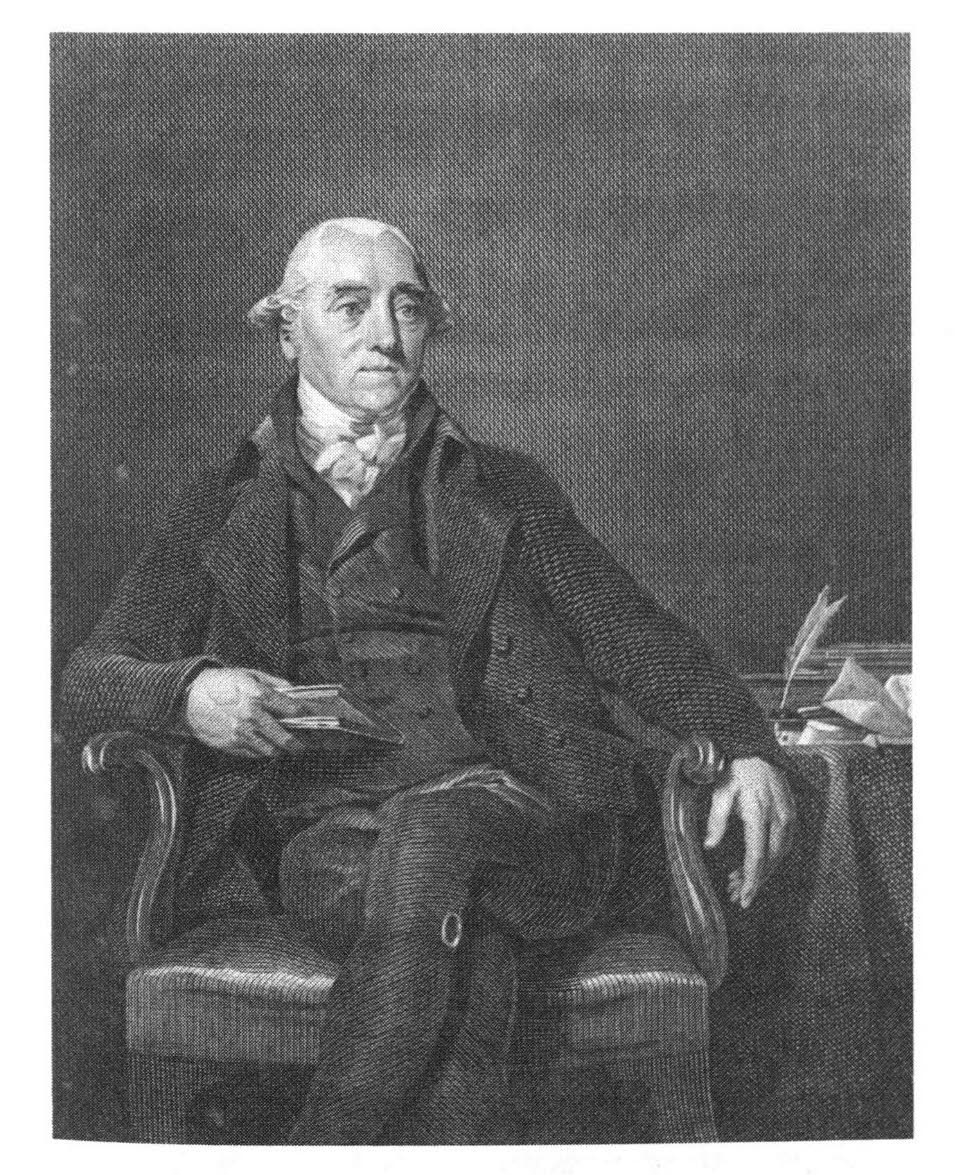
Following up John’s suggestions, I took a closer look at our copy. Both volumes were rebound in the 20th century; volume 2 is too tight to be able to tell if the title page is a cancel, but a beady-eyed Daryl, our Rare Books Librarian, spotted that the title page of volume one is indeed a cancel.
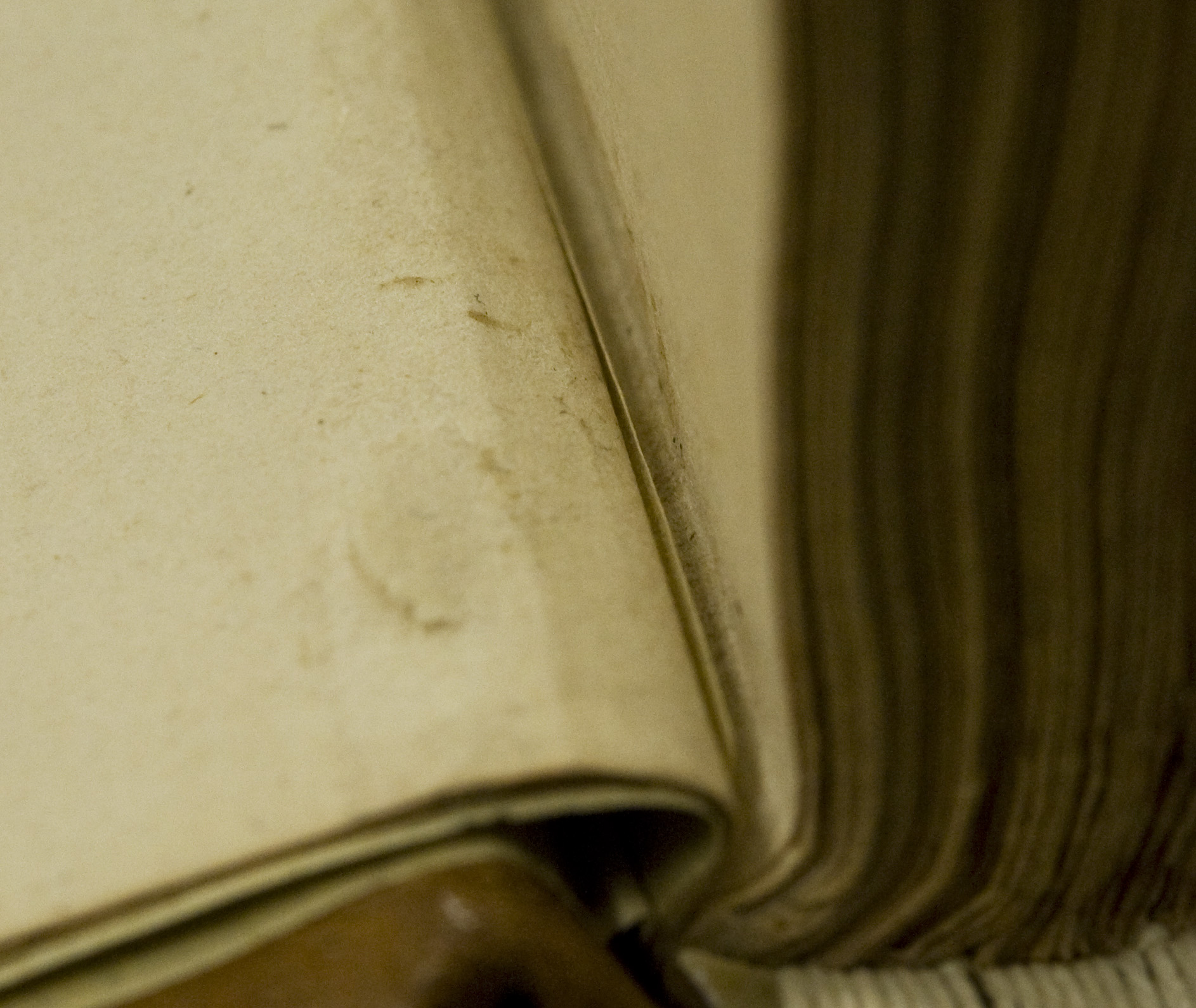
William Creech (1745-1815) was an important publisher in Edinburgh during the years of the Enlightenment, and had early in his career formed a professional alliance with William Strahan (a fellow Scot) and Thomas Cadell, with whom he co-published many works. Indeed, their collaboration, in as much as the Scottish Enlightenment is concerned, has been described as “the most important London-Edinburgh publishing partnership of the late eighteenth century” [Richard B Sher, The Enlightenment & the book: Scottish authors & their publishers in eighteenth-century Britain, Ireland, & America (University of Chicago Press, 2006), p. 413].
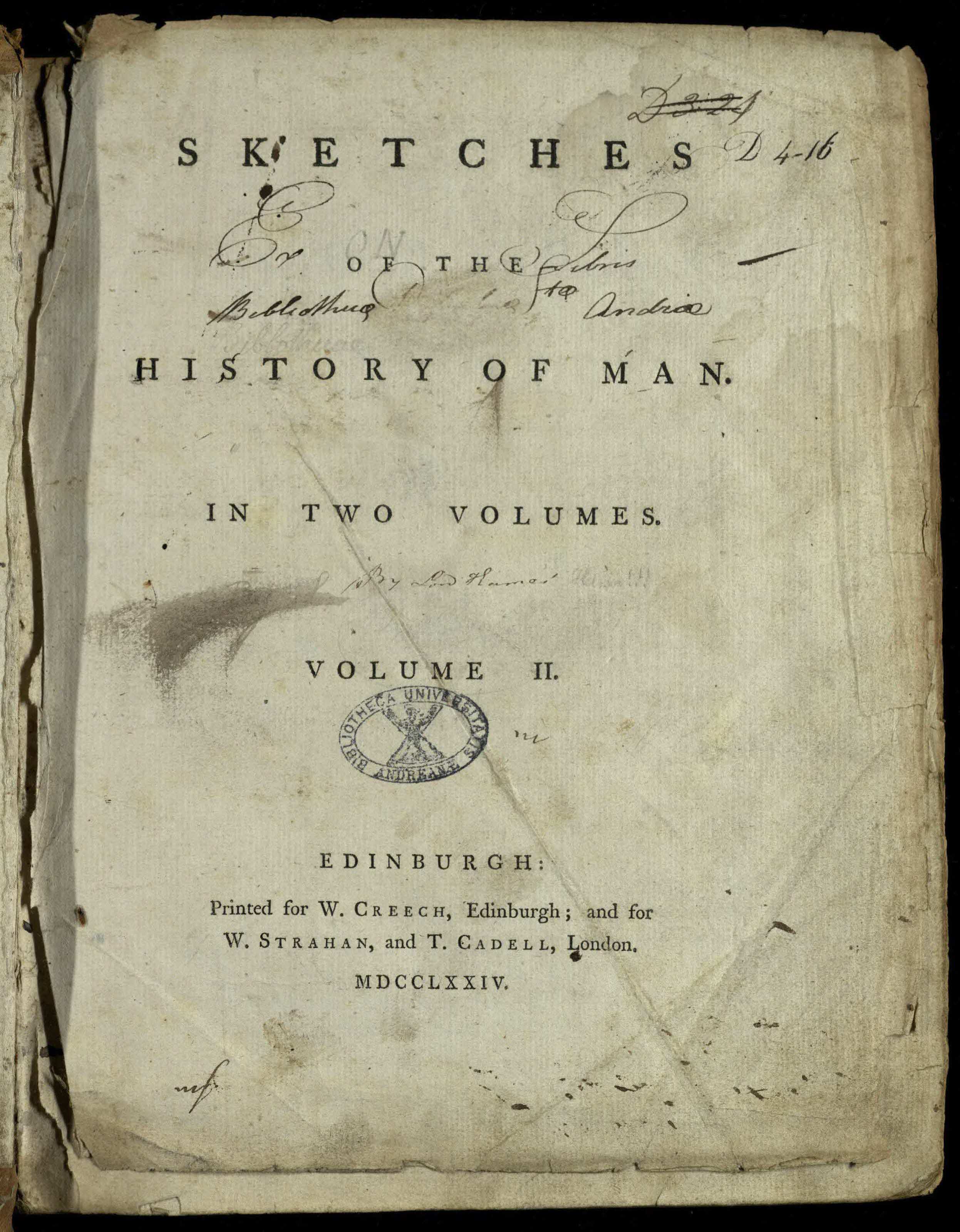
When co-publishing books with Strahan and Cadell Creech commonly gave their names prominence, a practice employed by other Edinburgh booksellers, either as an act of courtesy, or because the London co-publisher had seniority or owned a larger share of the copyright. Yet sometimes the collaboration happened behind the scenes, without names appearing in the imprint. We only know that a publisher was involved through private correspondence or newspaper advertisements. It is through such means that we know that Creech was either co-publisher or the distributor of such works as Thomas Robertson’s An inquiry into the fine arts (London, Strahan and Cadell, 1784) and James Boswell’s The journal of a tour to the Hebrides, with Samuel Johnson, LL.D (London, C. Dilly, 1785).
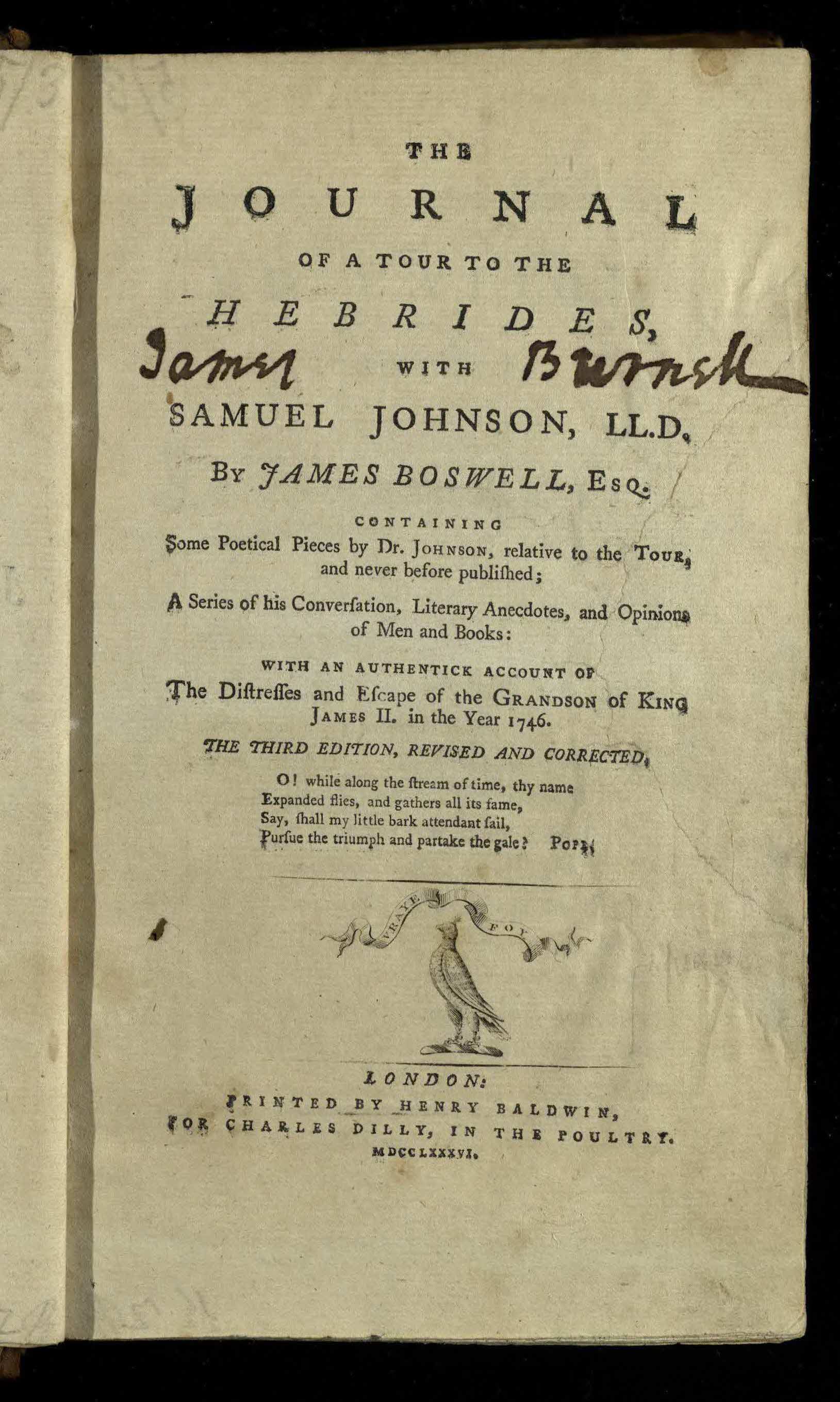
It was previously thought that Smith’s Wealth of Nations was amongst such works, an indication of his involvement being an advertisement in the Edinburgh Evening Courant of 20 March 1776 stating: “This day is published, by William Creech, (Elegantly printed in 2 vols, 4to, price 1l. 16s. in boards) An Enquiry into the Nature and Causes of the Wealth of Nations. By Adam Smith, L.L.D.”.
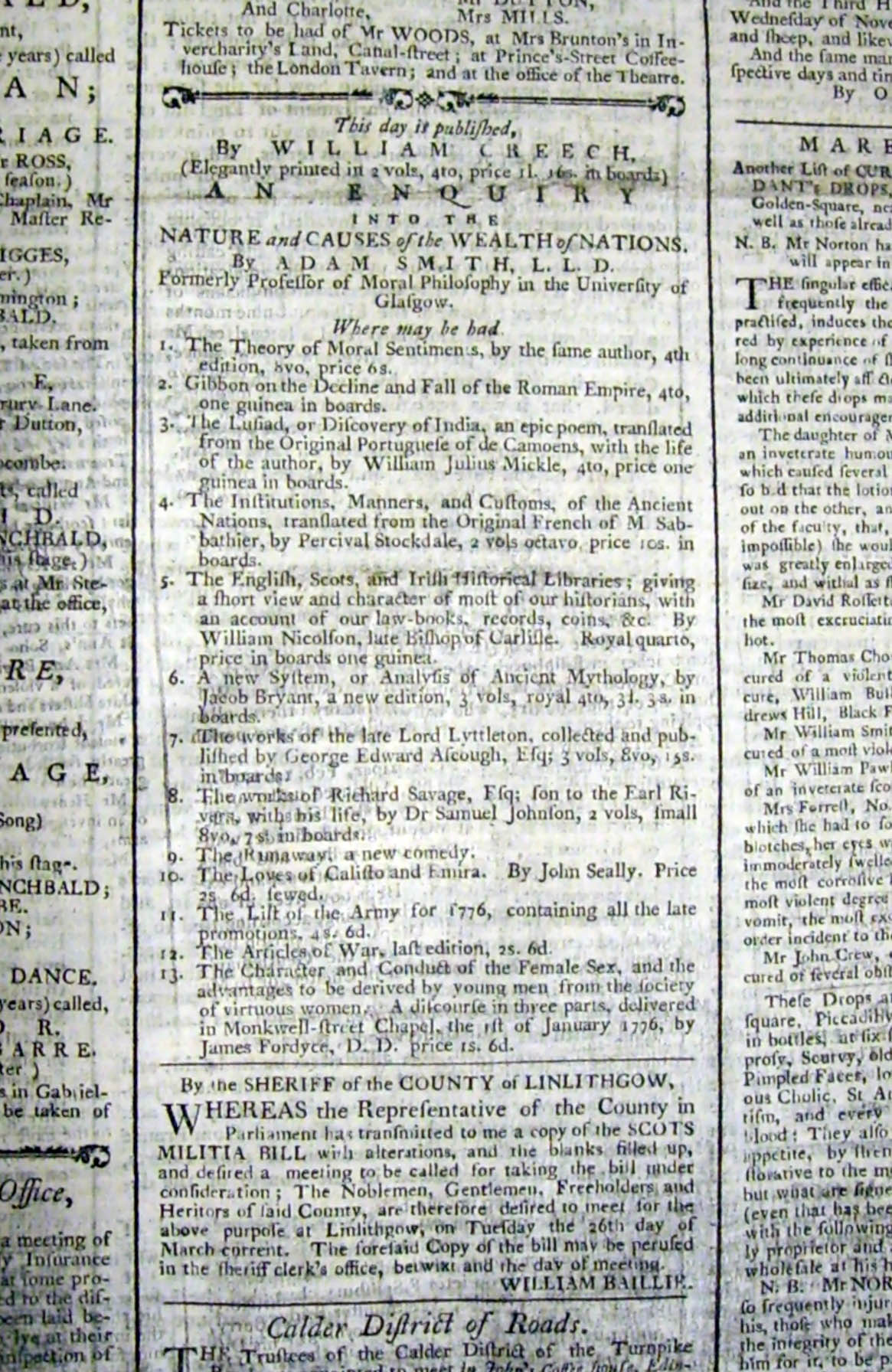
Here at St Andrews we quite clearly have the printed evidence that Creech was involved with the 1776 edition of the Wealth of Nations. Yet it remains, to me at least, a puzzle as to why he replaced the title pages with ones including his own name. Was this an oversight by the London publishers rectified by Creech in Edinburgh? Did Creech believe that the work was going to be a ‘best seller’, and therefore wanted his name on it after it had already been printed? Was this merely a practice employed by distributors in Scotland? I’m afraid I don’t have the answers, only the evidence behind what was once thought to be a silent co-publication. I now open the floor to discussion …
Briony Aitchison
Assistant Rare Books Librarian
[…] exist somewhere. Sometimes, what we discover is a slight variation of another edition. (That said, new first editions of well-known works do sometimes crop […]